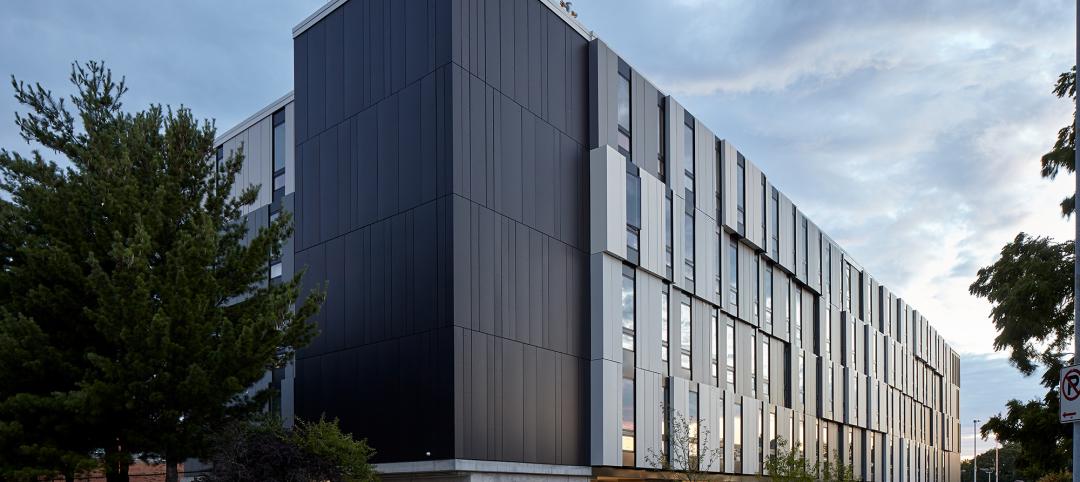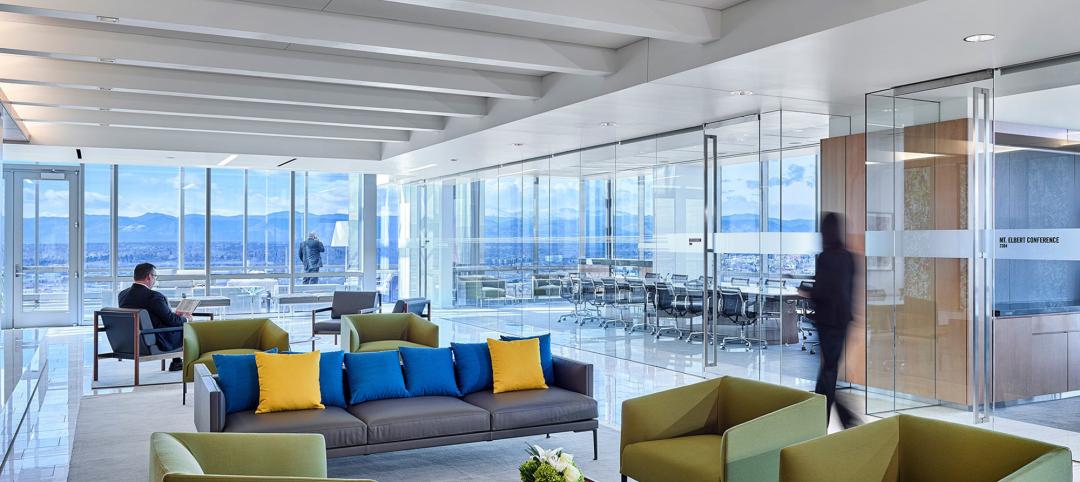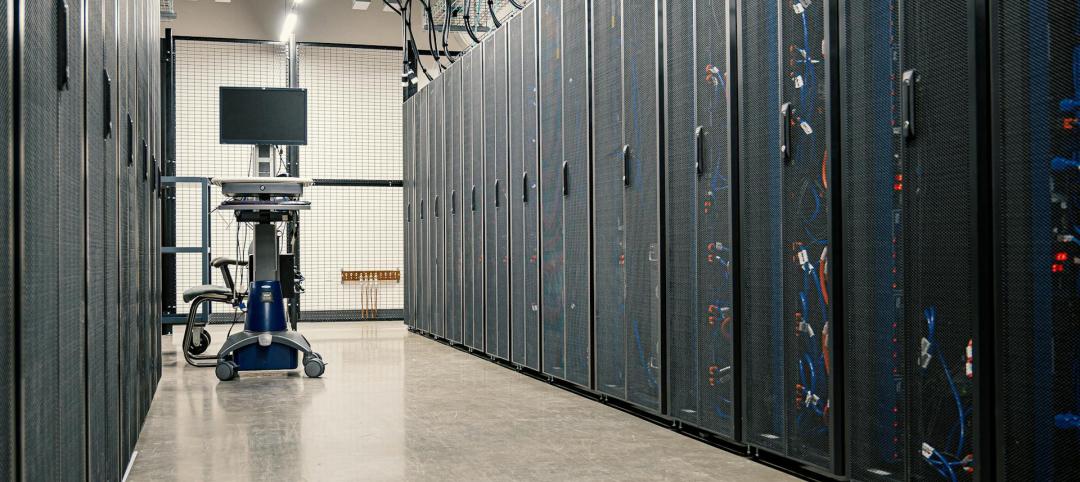Washington, D.C. – May 12, 2011 – The U.S. Green Building Council (USGBC) and the American Institute of Architects (AIA) today unveiled Local Leaders in Sustainability: A Special Report from Sundance, which outlines a five-point national action plan that mayors and local leaders can use as a framework to develop and implement green schools initiatives.
“This report should serve as a guidepost for many communities throughout the country that are looking for ways to implement green initiatives but fear the expense involved,” said AIA President Clark Manus, FAIA. “In reality, the average school is 42 years old, and energy inefficiencies cost it approximately $100,000 a year, money that could be better spent on teachers, education materials, books or computers.”
The steps outlined in the five-point plan include tangible action steps and are based on the conversations that took place at Sundance and successful green schools initiatives from across the United States and include:
1. Connect with the Green Schools Movement
2. Engage Stakeholders and Raise Awareness
3. Build Community Support and Capacity
4. Make it Happen: Benchmarking, Policy and Financing
5. Celebrate Success
The report also provides a comprehensive review of the benefits of green schools; a summary of local, state and federal policy solutions; leadership profiles of green school advocates; and case studies from both large cities and small communities. Together, these resources serve as a roadmap on the journey to green schools.
This special report stems from outcomes at the Greening of America’s Schools Summit, which took place November 2010 at the Redford Conference Center at Sundance, Utah. USGBC and its Center for Green Schools; the Redford Center, founded by Robert Redford; and ICLEI – Local Governments for Sustainability USA, collaborated to host the Greening of America’s School Summit, which brought U.S. mayors and superintendents from cities across the country, along with leaders in green design, education, arts and green school advocacy to take part in an intimate discussion on the importance of greening school districts.
“Through the greening of America’s schools, we have the chance to improve the health and education of our children, inspire future leaders and create a stronger America,” said Rick Fedrizzi, President, CEO and Founding Chair, USGBC. “Sundance was just the beginning. This comprehensive blueprint provides local policy makers and community members ways in which they too can accelerate green schools in their areas.”
“The Greening of Americas Schools Summit marked an important first step in realizing that the environmental quality of our schools is essential to our future and long-term well-being. As a result, Mayors and Superintendents came together to chart a new course toward healthy, sustainable schools where our children can grow and excel. We must now take this blueprint into action so that every child in America can attend a green school within this generation,” said Martin J. Chávez, Executive Director, ICLEI - Local Governments for Sustainability USA.
The report was issued this week at the 2011 AIA National Convention and Design Exhibition in New Orleans and USGBC’s annual Government Summit in Washington, D.C. It can be downloaded free-of-charge from centerforgreenschools.org/actionplan.
About The American Institute of Architects
For over 150 years, members of the American Institute of Architects have worked with each other and their communities to create more valuable, healthy, secure, and sustainable buildings and cityscapes. Members adhere to a code of ethics and professional conduct to ensure the highest standards in professional practice. Embracing their responsibility to serve society, AIA members engage civic and government leaders and the public in helping find needed solutions to pressing issues facing our communities, institutions, nation and world.
About the U.S. Green Building Council
The Washington, D.C.-based U.S. Green Building Council is committed to a prosperous and sustainable future for our nation through cost-efficient and energy-saving green buildings. With a community comprising 79 local affiliates, 16,000 member companies and organizations, and more than 155,000 LEED Professional Credential holders, USGBC is the driving force of an industry that is projected to contribute $554 billion to the U.S. gross domestic product from 2009-2013. USGBC leads an unlikely diverse constituency of builders and environmentalists, corporations and nonprofit organizations, elected officials and concerned citizens, and teachers and students.
Related Stories
Curtain Wall | Aug 15, 2024
7 steps to investigating curtain wall leaks
It is common for significant curtain wall leakage to involve multiple variables. Therefore, a comprehensive multi-faceted investigation is required to determine the origin of leakage, according to building enclosure consultants Richard Aeck and John A. Rudisill with Rimkus.
MFPRO+ News | Aug 14, 2024
Report outlines how Atlanta can collaborate with private sector to spur more housing construction
A report by an Urban Land Institute’s Advisory Services panel, commissioned by the city’s housing authority, Atlanta Housing (AH), offered ways the city could collaborate with developers to spur more housing construction.
Adaptive Reuse | Aug 14, 2024
KPF unveils design for repositioning of Norman Foster’s 8 Canada Square tower in London
8 Canada Square, a Norman Foster-designed office building that’s currently the global headquarters of HSBC Holdings, will have large sections of its façade removed to create landscaped terraces. The project, designed by KPF, will be the world’s largest transformation of an office tower into a sustainable mixed-use building.
Sustainability | Aug 14, 2024
World’s first TRUE Zero Waste for Construction-certified public project delivered in Calif.
The Contra Costa County Administration Building in Martinez, Calif., is the world’s first public project to achieve the zero-waste-focused TRUE Gold certification for construction. The TRUE Certification for Construction program, administered by Green Business Certification Inc. (GBCI), recognizes projects that achieve exceptional levels of waste reduction, reuse, and recycling.
Modular Building | Aug 13, 2024
Strategies for attainable housing design with modular construction
Urban, market-rate housing that lower-income workers can actually afford is one of our country’s biggest needs. For multifamily designers, this challenge presents several opportunities for creating housing that workers can afford on their salaries.
University Buildings | Aug 12, 2024
Planning for growing computer science programs
Driven by emerging AI developments and digital transformation in the business world, university computer science programs are projected to grow by nearly 15% by 2030.
Energy Efficiency | Aug 9, 2024
Artificial intelligence could help reduce energy consumption by as much as 40% by 2050
Artificial intelligence could help U.S. buildings to significantly reduce energy consumption and carbon emissions, according to a paper by researchers at the Lawrence Berkeley National Laboratory.
Sponsored | Healthcare Facilities | Aug 8, 2024
U.S. healthcare building sector trends and innovations for 2024-2025
As new medicines, treatment regimens, and clinical protocols radically alter the medical world, facilities and building environments in which they take form are similarly evolving rapidly. Innovations and trends related to products, materials, assemblies, and building systems for the U.S. healthcare building sector have opened new avenues for better care delivery. Discussions with leading healthcare architecture, engineering, and construction (AEC) firms and owners-operators offer insights into some of the most promising directions. This course is worth 1.0 AIA/HSW learning unit.
Office Buildings | Aug 8, 2024
6 design trends for the legal workplace
Law firms differ from many professional organizations in their need for private offices to meet confidentiality with clients and write and review legal documents in quiet, focused environments
Data Centers | Aug 8, 2024
Global edge data center market to cross $300 billion by 2026, says JLL
Technological megatrends, including IoT and generative AI, will require computing power to be closer to data generation and consumption, fueling growth of edge IT infrastructure, according to a new JLL report.
















